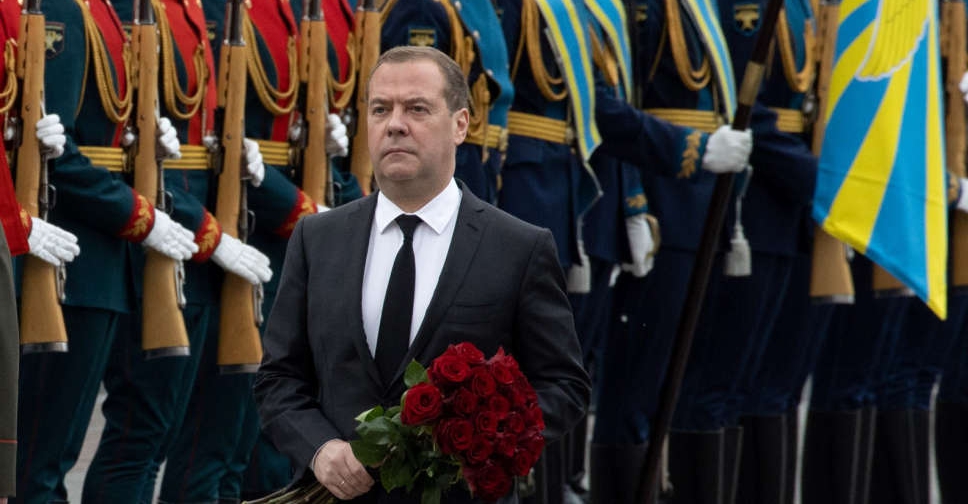
Former Russian president Dmitry Medvedev said the country's factories are meeting an exponential increase in defence orders, mocking the idea that Moscow's forces in Ukraine were running out of missiles.
Medvedev said Moscow had increased military production "by tens of times" at some factories and was closely studying weapons fired into Russian-held areas from the Ukrainian side to gain an advantage.
Russia moved defence production into overdrive last year as its forces burned through vast quantities of ammunition in Ukraine and had thousands of armoured vehicles destroyed or captured.
A leading Western think tank said last week that Russia had lost around half of its most modern tanks and was struggling to replace them. In addition, Ukrainian and Western officials have said that Moscow is running low on some types of missiles and that Western sanctions are hampering its ability to replenish its stocks of guided weapons that rely on imported microchips.
"It was funny to hear the Kyiv fantasists reasoning that 'missiles ran out' in Russia or 'production stopped'. The reality convinced them of the opposite - they still cannot get over the shock," Medvedev said in an article published on Saturday in the monthly magazine National Defence.
"We are not just expanding production, but also introducing the latest technologies, perfecting them literally 'on the march'."
Medvedev is deputy chairman of Russia's Security Council and was appointed in December to be President Vladimir Putin's deputy on the Military-Industrial Commission that oversees the defence industry.
Defence factories were "fully coping" with the increased demand from the state, he said.
"Incidentally, we have also studied enemy weapons quite well, which were taken as trophies and dismantled to the last screw at our military construction bureaux," Medvedev added. "We extracted a lot of useful things for ourselves - we turned the enemy's experience to our own advantage."
Medvedev, 57, has adopted an increasingly hawkish tone and made a series of outspoken interventions since the war began, with some political analysts suggesting he is one of the people that Putin might one day consider as a successor. On Friday, he said the only way for Moscow to ensure a lasting peace with Ukraine was to push back the borders of hostile states as far as possible, even if that meant the frontiers of NATO member Poland.

 Iranian President Raisi killed in helicopter accident, state media says
Iranian President Raisi killed in helicopter accident, state media says
 ICC prosecutor seeks arrest warrants for Israeli, Hamas leaders
ICC prosecutor seeks arrest warrants for Israeli, Hamas leaders
 Assange given permission to appeal against US extradition
Assange given permission to appeal against US extradition
 Israel intends to broaden Rafah sweep, Defence Minister tells US
Israel intends to broaden Rafah sweep, Defence Minister tells US
 New Taiwanese president calls on China to stop threats
New Taiwanese president calls on China to stop threats



